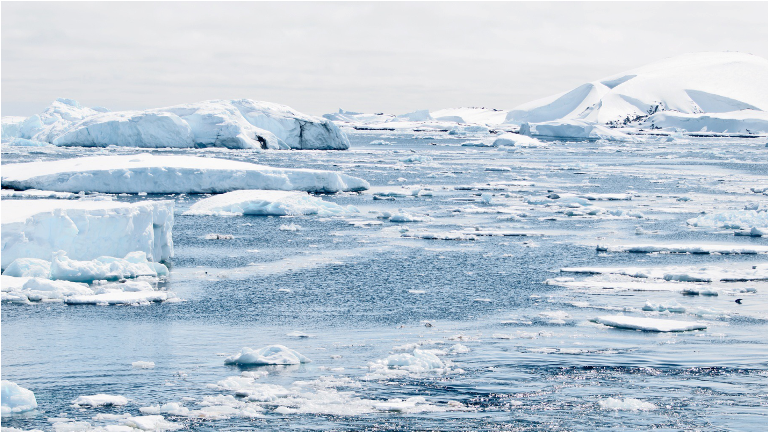Climate change is one of the most alarming crises of the 21st century. Every year, the global economies reiterate their commitment to limit Greenhouse Gas Emissions from the global platform to achieve the targets set under the legally binding Paris Agreement of 2015 adopted by 196 Parties at the UN Climate Change Conference (COP21). But the real-time data published by the UN agency tells a different story altogether as in 2022, GHG emissions continued to rise globally.
The ocean water getting warm, as 90% of the total excess energy accumulates within the earth’s system due to higher GHG emission concentration affects the oceans which reflects rising sea levels and melting glaciers. The melting of glaciers has shown an unexplained trend beyond historical retreating patterns in the last few decades. These meltdowns bring the risk for millions of the population with frequent floods, droughts, and lack of clean drinking water.
70% of freshwater globally is in the form of frozen glaciers and thus has an important part to play in the earth’s ecosystem. Their continuous melting is expected to bring irreversible loss to the human population and biodiversity. This will lead to acute water shortages for millions of people along with the destruction of coastal habitats and the livelihood opportunities for local coastal communities posing a serious threat to their survival.
The oceans are helping to keep the climatic balance by absorbing 25% of annual CO2 emissions. But the melting glaciers bring a huge cost to settle the climate change impacts. The rising sea levels severely affect the coral reefs and pose threats to coastline protection and their tourist attractions that directly impact tourism and the hospitality sector across the regions.
Thus, to tackle this scenario the policymakers need to address glacier melting as one of the priority agenda and work on a carbon-free energy transition to support sustainable growth and development. More stringent legislation needs to be passed to combat global warming where financial institutions will play a significant role by putting investments in the companies with clear green energy policies. Additionally, the reduced limits of future carbon emissions by global economies will also be required to provide a better life for future generations on the planet Earth.

